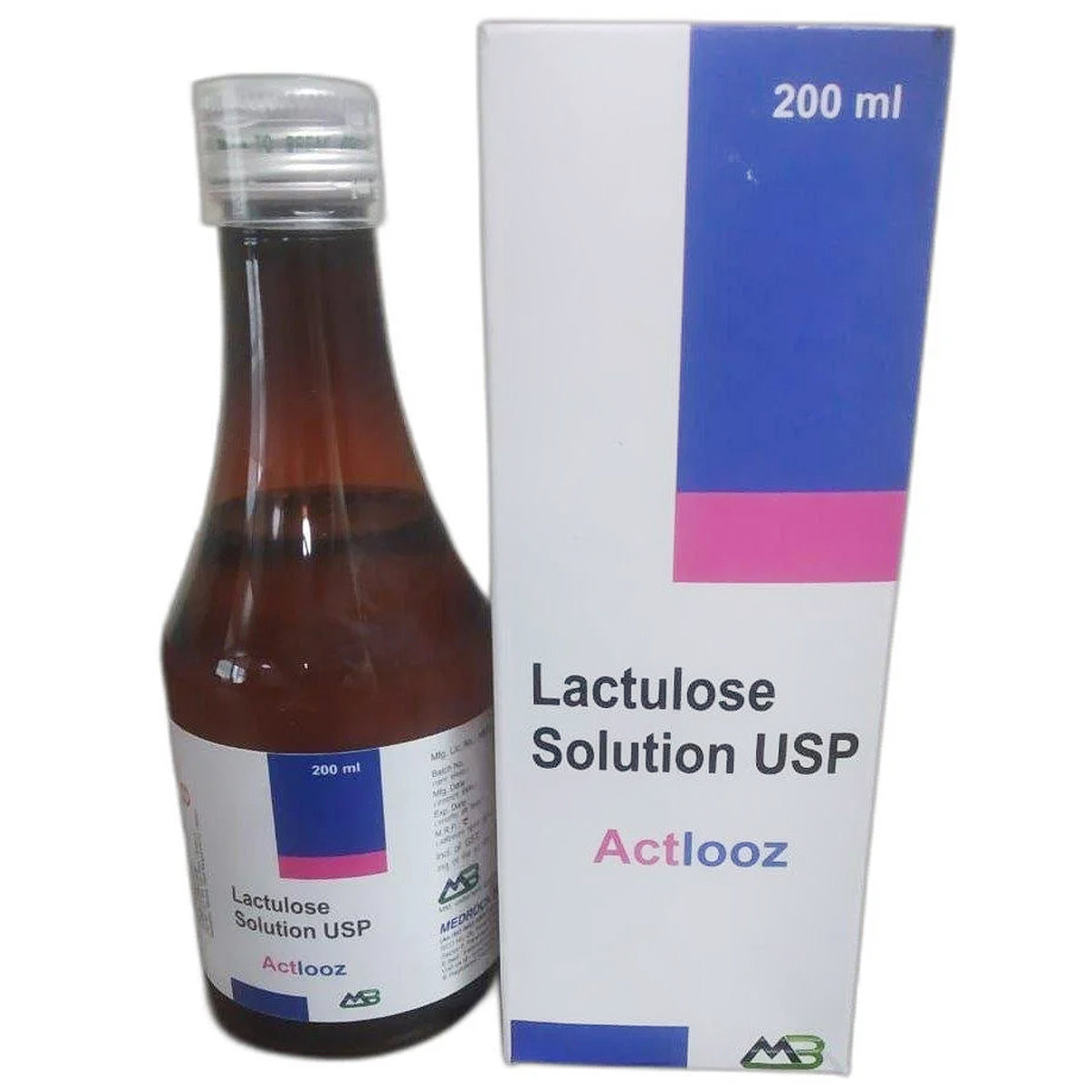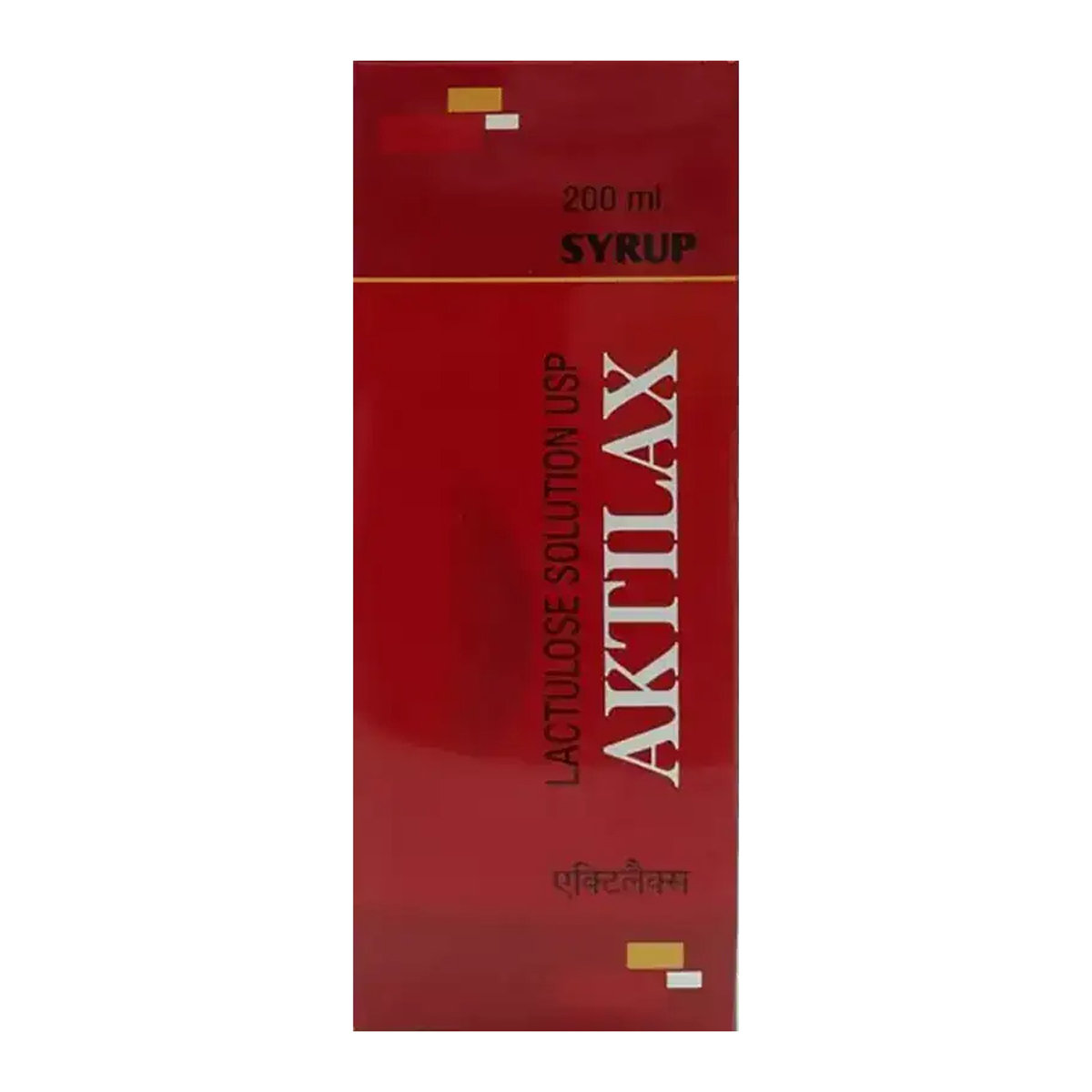Lactulose
About Lactulose
Lactulose belongs to the group of medicines called laxatives used to treat constipation. Lactulose is also used to treat hepatic encephalopathy. Constipation refers to infrequent bowel movements in which the stools are often dry, painful and hard to pass. Hepatic encephalopathy is a liver disease which causes the accumulation of toxic substances in the bloodstream which are normally removed by the liver.
Lactulose contains 'lactulose' which works by absorbing water from the body and into the bowel. This softens stools and makes it easier to pass. Besides this, it also reduces the amount of ammonia in the blood of patients with liver disease by drawing ammonia from the blood into the colon, thereby facilitating the removal of toxins from the body.
You are advised to take Lactulose for as long as your doctor has prescribed it for you, depending on your medical condition. In some cases, you may experience certain common side-effects such as diarrhoea, flatulence (wind), abdominal pain, nausea, and vomiting. Most of these side-effects do not require medical attention and will resolve gradually over time. However, you are advised to talk to your doctor if you experience these side-effects persistently.
Drink plenty of fluids (at least 6-8 glasses) while taking Lactulose. Consult your doctor before taking Lactulose if you are pregnant or breastfeeding. Lactulose should be given to children only if prescribed by a child specialist. Do not take Lactulose if you have galactosaemia (galactose indigestion disorder). Inform your doctor if you have diabetes, or if you are due to undergo a colonoscopy. Chronic use of unadjusted doses or misuse of Lactulose may cause diarrhoea and electrolyte imbalance, therefore take it only as advised by the doctor.
Uses of Lactulose
Medicinal Benefits
Lactulose belongs to a group of medicines known as laxatives used to treat constipation. It works by drawing water into the bowel and makes the stool softer and easier to pass, thereby providing relief from constipation. Lactulose helps in normalizing bowel movements. Lactulose also helps in the growth of good gut bacteria which help in proper digestion. Lactulose is also used to treat hepatic encephalopathy. It works by reducing the amount of ammonia in the blood of patients with liver disease by drawing ammonia from the blood into the colon, thereby facilitating the removal of toxins from the body.
Directions for Use
Storage
Side Effects of Lactulose
- Diarrhoea
- Flatulence (wind)
- Abdominal pain
- Nausea
- Vomiting
Drug Warnings
Do not take Lactulose if you are allergic to any of its contents, if you have galactosaemia (galactose indigestion disorder), galactose or fructose intolerance, glucose-galactose malabsorption, Lapp lactase deficiency, intestinal blockage, or digestive perforation. Inform your doctor if you are unable to digest lactose/lactose intolerant, have diabetes, irritable bowel syndrome, or if you are due to undergo a colonoscopy. Consult your doctor before taking Lactulose if you are pregnant or breastfeeding. Chronic use of unadjusted doses or misuse of Lactulose may cause diarrhoea and electrolyte imbalance, therefore take it only as advised by the doctor.
Drug Interactions
Drug-Drug Interactions: Lactulose may have interaction with diuretic (furosemide), laxatives (docusate, polyethylene glycol), anti-emetic (ondansetron), and anti-psychotic (quetiapine).
Drug-Food Interactions: No interactions found/established.
Drug-Disease Interactions: Lactulose may have interactions with conditions such as intestinal obstruction disorder, and galactosemia (galactose indigestion disorder).
Drug-Drug Interactions Checker List:
Safety Advice

Alcohol
cautionIt is not known if alcohol consumption affects Lactulose. Please consult your doctor if you have any concerns.

Pregnancy
cautionPlease consult your doctor before taking Lactulose if you are pregnant; your doctor will prescribe Lactulose if the benefits outweigh the risks. Lactulose should be taken with caution during the first 3 months of pregnancy.

Breast Feeding
cautionPlease consult your doctor before taking Lactulose if you are breastfeeding; your doctor will prescribe Lactulose if the benefits outweigh the risks.

Driving
safe if prescribedLactulose usually does not affect your ability to drive.

Liver
cautionPlease consult your doctor if you have a liver impairment or any concerns regarding this.

Kidney
cautionPlease consult your doctor if you have kidney impairment or any concerns regarding this.

Children
safe if prescribedLactulose can be given to children if prescribed by a doctor.
Habit Forming
Diet & Lifestyle Advise
- Try maintaining a balanced diet which includes fresh fruits and vegetables.
- Stay hydrated, drink enough water and fluids.
- Exercise regularly, and stay fit.
- Get enough sleep.
- Trying making time to empty your bowels whenever the body tells you to.
- Eat food rich in fibre such as whole-wheat bread, oatmeal, flaxseed, nuts, beans, lentils, fruits (berries, apples, oranges, bananas, pears, figs) and vegetables (broccoli, spinach, sweet potatoes, avocados).
Special Advise
If you are undergoing any surgery or tests on your rectum or colon, inform the doctor that you are taking Lactulose.
Patients Concern
Disease/Condition Glossary
Constipation: It refers to infrequent bowel movements. The stools are often dry, painful and hard to pass. Constipation is a medical condition in which the person has fewer than three bowel movements in a week. However, bowel patterns may vary from person to person. Symptoms include bloating, abdominal pain, and feeling as if the bowel movement is incomplete. Constipation occurs when the normal muscle contractions in the large intestine slow down, which causes the incomplete elimination of the bowel from the body. Constipation could be associated with a sudden change of diet, a diet with less fibre, not drinking enough liquids, and lack of exercise.
Hepatic encephalopathy: It is a liver/hepatic disease in which the liver does not remove the toxins from the body, which leads to loss of brain function. Hepatic encephalopathy causes confusion, tremor, decreased consciousness and coma.
FAQs
Lactulose works by drawing water into the bowel and makes the stool softer and easier to pass, thereby providing relief from constipation.
Lactulose is used to treat hepatic encephalopathy in adults. Hepatic encephalopathy is a liver disease in which the liver does not remove the toxins from the body, which leads to loss of brain function.
Diarrhea might occur if Lactulose is taken in larger doses. Drink lots of fluids if you experience diarrhoea. If you find blood in stools (tarry stools) or if you experience severe diarrhoea, consult your doctor. Do not take anti-diarrheal medicine on your own.
Do not take Lactulose for longer durations unless prescribed by the doctor. Taking Lactulose for longer durations might cause dehydration, an imbalance of electrolytes in the body which can affect the tightness of muscles in the intestine. If your bowel movement is irregular even after taking Lactulose for a week, consult your doctor.
Lactulose contains lactulose, a synthetic sugar. In normal doses, it might not affect your blood glucose levels. However, consult your doctor before taking Lactulose if you are diabetic.






